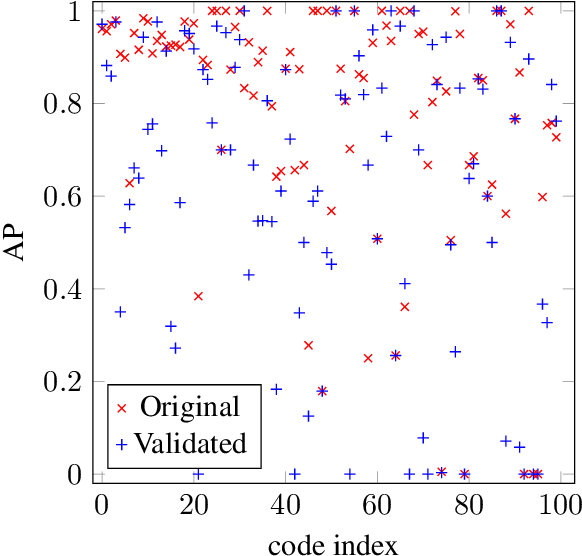Supervised Learning in the Presence of Noise: Application in ICD-10 Code Classification
Paper and Code
Mar 13, 2021



ICD coding is the international standard for capturing and reporting health conditions and diagnosis for revenue cycle management in healthcare. Manually assigning ICD codes is prone to human error due to the large code vocabulary and the similarities between codes. Since machine learning based approaches require ground truth training data, the inconsistency among human coders is manifested as noise in labeling, which makes the training and evaluation of ICD classifiers difficult in presence of such noise. This paper investigates the characteristics of such noise in manually-assigned ICD-10 codes and furthermore, proposes a method to train robust ICD-10 classifiers in the presence of labeling noise. Our research concluded that the nature of such noise is systematic. Most of the existing methods for handling label noise assume that the noise is completely random and independent of features or labels, which is not the case for ICD data. Therefore, we develop a new method for training robust classifiers in the presence of systematic noise. We first identify ICD-10 codes that human coders tend to misuse or confuse, based on the codes' locations in the ICD-10 hierarchy, the types of the codes, and baseline classifier's prediction behaviors; we then develop a novel training strategy that accounts for such noise. We compared our method with the baseline that does not handle label noise and the baseline methods that assume random noise, and demonstrated that our proposed method outperforms all baselines when evaluated on expert validated labels.
 Add to Chrome
Add to Chrome Add to Firefox
Add to Firefox Add to Edge
Add to Edge